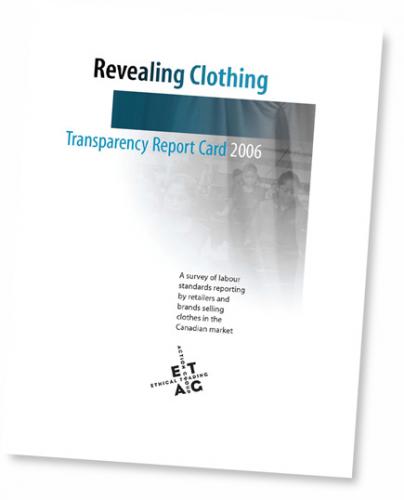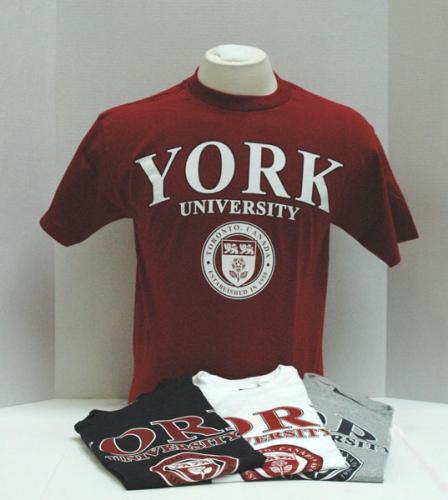WELCOME TO THE ARCHIVE (1994-2014) OF THE MAQUILA SOLIDARITY NETWORK. For current information on our ongoing work on the living wage, women's labour rights, freedom of association, corporate accountability and Bangladesh fire and safety, please visit our new website, launched in October, 2015: www.maquilasolidarity.org
 Revealing Clothing, ETAG's second Transparency Report Card, picks up where Coming Clean on the Clothes We Wear left off. It assesses and compares public reporting on labour standards compliance by 30 top apparel retailers and brands selling clothes in the Canadian market, including Levi Strauss, Nike, adidas, H&M, Mountain Equipment Co-op, Roots, La Senza, Reitmans and 22 others. This year's report also discusses worker involvement, purchasing practices and sustainable compliance.
Revealing Clothing, ETAG's second Transparency Report Card, picks up where Coming Clean on the Clothes We Wear left off. It assesses and compares public reporting on labour standards compliance by 30 top apparel retailers and brands selling clothes in the Canadian market, including Levi Strauss, Nike, adidas, H&M, Mountain Equipment Co-op, Roots, La Senza, Reitmans and 22 others. This year's report also discusses worker involvement, purchasing practices and sustainable compliance.
Coming Clean on the Clothes We Wear assesses and compares 25 retailers and brands based on the information they provide to the public on their efforts to address labour rights issues in their global supply chains.
The Conference Board of Canada's response to ETAG's disclosure proposal largely dismisses the proposal. Unfortunately the report demonstrates a lack of understanding of that proposal or its objectives, a lack of concrete alternatives, and a disturbing bias against union representation.
A Needle in a Haystack examines Canadian investment and sourcing practices in the garment assembly-for-export industry in Mexico and Central America, and labour practices and working conditions in those factories. This report includes case studies on two Canadian manufacturers -- Nygard International and Gildan Activewear; country labour "vignettes" for Canadian homeworkers and maquila garment-for-export workers in Nicaragua, Honduras and Mexico; and corporate profiles of prominent Canadian retailers and manufacturers.
 On Saturday March 8th, York University President Mamdouh Shoukri made a commitment to introduce a No Sweat licensing policy at the university by April. This promise came in response to a 45 hour sit-in by York students, members of the Sustainable Purchasing Coalition (SPC), a student group lobbying to reform York purchasing policy to more sustainable standards. If this pledge goes through as promised, York will bring the number of Canadian Universities with No Sweat policies to 17.
On Saturday March 8th, York University President Mamdouh Shoukri made a commitment to introduce a No Sweat licensing policy at the university by April. This promise came in response to a 45 hour sit-in by York students, members of the Sustainable Purchasing Coalition (SPC), a student group lobbying to reform York purchasing policy to more sustainable standards. If this pledge goes through as promised, York will bring the number of Canadian Universities with No Sweat policies to 17.
Threads of Justice draws attention to the exploitation that takes place in the Canadian garment industry. It uses interviews and footage to illustrate the conditions in factories and the abuse that homeworkers face. This video also looks at some actions that have taken place against sweatshops, and some examples of companies that work to ensure their products are made sweatshop free.
This CBC report explores the working conditions of garment workers in Toronto and Vancouver. It profiles two women who work in garment workshops that only employ immigrants who are unable to find work elsewhere. This video shows footage from inside the workshops and, through the stories told by the women, recreates the conditions experienced by workers.
Beyond McWorld takes a look at the ways in which governments have lost power to corporations and the movement that has emerged to challenge corporate rule. Democracy, globalization, and free trade are some of the themes covered.
The Ethical Trading Action Group's proposal for factory disclosure regulations gets the cold shoulder from Canada's Industry Minister.